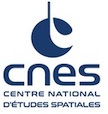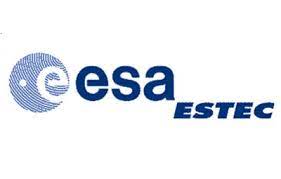
|
|
|
|
Synopsis Over the last decades, astrophysics and cosmology have been advancing impressively thanks to powerful observing facilities. Microwave experiments measuring anisotropies of the Cosmic Microwave Background with high precision were particularly impacful on cosmology, and observations of dust emission from the infrared to millimeter wavelengths on our understanding of interstellar medium physics and galaxy evolution. These are the entwined threads of Jean-Loup Puget's scientific path, from the discovery of diffuse light from the Milky Way in the far infrared, then of PAHs and of the cosmic far-infrared background, up to the success of Planck, which has brought together cosmology and Galactic astrophysics with particle and theoretical physics. This meeting is an opportunity to gather those of us who had the pleasure to work with Jean-Loup, as well as the younger ones advancing on the same research topics. New developments in astronomical instrumentation will be presented in relation with outstanding questions in cosmology and Galactic astrophysics. While discussing current research and future prospects, we will celebrate Jean-Loup Puget's contributions: his scientific leadership, and the lasting collaborations and friendships that have resulted. The meeting topics revolve around Jean-Loup's contributions to astrophysics and cosmology. The scientific programme is built around 3 main themes: (1) IR and microwave instrumentation, (2) interstellar astrophysics and galaxies and (3) cosmology. It will also include accounts of the historical context of his work. Far-infrared and microwave instrumentation
Interstellar astrophysics in galaxies
Cosmology
Invited speakers will cover the three topics. The program will also include contributed presentations (oral and posters). Much time will be allocated to discussions including three round-tables to debate about future prospects. Planning The conference will start Monday 12 at 2 PM and end Friday 16 June at noon. Free lunches will be served from Tuesday to Friday in the Observatory's restaurant facing the sea. We will organize a welcome cocktail on monday at 6:30 PM. The conference dinner will take place on Thursday in the building of the Biodiversarium where we can enjoy a rich display of local marine life with a guide and learn about the history of the Observatoire Océanologique. Wednesday afternoon is reserved for free time, hiking and sightseeing. Outreach Françoise Combes will give a public lecture Wednesday 14 at 6:30 PM, organized with the association les Amis du Laboratoire Arago. Code of conduct The organisers are committed to making this meeting productive and enjoyable for everyone involved, regardless of age, body size, disability, ethnicity, gender, marital status, nationality, physical appearance, political affiliation, pregnancy, race, religion or sexual orientation. We adopt the Code of Conduct for the ESO workshops and conference, available on this page. Participants are expected to adhere to these guidelines. Institutional support |








